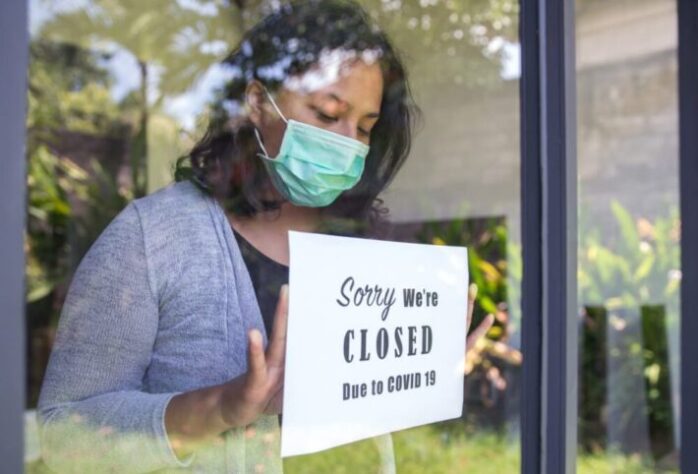
It’s difficult right now, but that doesn’t stop the business world from turning. We’ve got over six million small to medium enterprises (SMEs) in the UK and the number is set to continue rising despite the COVID pandemic.
Most businesses, in their first year, look for some kind of financial assistance. It’s a sound plan; you need to get that growth going and the first period of your business is the most important. With that in mind, we’ve put together a set of four important points to keep in mind as you get ready for success in the months ahead.
Look at each of these points, think about how they relate to what you want to achieve in the next few months and seriously consider adjusting your plans to accommodate anything helpful you pick up from reading this article. We’re confident there’s some genuinely beneficial stuff in this one, so get scrolling and get to it!
1. Government support

It’s important you stay aware and abreast of what’s on offer from the government for small businesses and startups. Since COVID-19 has started, there have been a range of initiatives rolled out designed to support businesses during this uncertain economic time. You can keep an eye on all of these on the government page where you can see details for packages like the Coronavirus Business Interruption Loan scheme.
What’s also important is that you take the availability of these with a little scepticism. The government has rolled out packages under pressure from interest groups and the business community and it’s never guaranteed how long a particular offering will be around for.
So, do this: take advantage of what’s available to you and keep a regular eye on the news for details on what’s new and what’s soon to end. Be ready to benefit from the support offered by the government but don’t pin everything on that support; it might be rolled back at any given moment.
2. Predicting your customers

It’s difficult to know how your customers will act after COVID is resolved more fully, but it’s important to predict and speculate to the best of your ability. While you can’t fully predict the interests and appetite of your prospective customer and client base you can measure their present behaviour and look online for opinions from analysts and professionals in your industry.
This will shape your strategy as you go forward. If your customers and clients look set to expand their spending in the months ahead, you can adjust for that. You might also discover that they have certain preferences at the moment; a common example of this is many companies placing an emphasis on personalised communication during the pandemic, which builds trust during a difficult time.
It’s a fair statement that people want companies they can believe in and rely on during a difficult period. It’s a fairly universal piece of legitimate advice that you should consider how you communicate to your customers during and after the pandemic with this in mind. They’ll remember how you did.
3. Review competition

One of the easiest and most reliable ways to get a good idea of how to proceed is to simply do some competitor analysis. You’ll benefit from being able to see what your competition is up to. Make a list of areas that you need to look into, such as their websites, communication channels and advertising strategy.
Particularly for larger businesses in the industry you’re planning on getting into, the fruits of their labour and investment are visible online, so why not benefit from analysing it? Review how they are talking to their customers and clients on social media, sign up to their newsletters and trawl through their websites to get a handle on what their priorities are during COVID-19. It’s free, it’s effective and it’s a great way to shape your own strategy without having to spend part of your money or your personal loan from a company like Everyday-loans.
4. Budget with room for error

The hallmark of COVID-19 is uncertainty. We don’t know when the pandemic will end, we aren’t really sure how long government relief packages will last and we’re still all figuring out how our customers and clients are adjusting to pandemic life. Industries are shaking and, in some cases, falling apart.
This doesn’t mean it’s all doom and gloom, so don’t worry. All it does mean is that when you come to budget for your plans and months ahead, do it with as much a margin of error as you can feasibly manage without crippling yourself or your goals. Build-in some redundancy and think about worst-case scenarios. What would happen if you didn’t get any business in for three months and what would you do if no government relief was available at all? Be brutal, be honest and build in that redundancy into your plan.
That’s all, folks
And there you have it: four great points on what to consider when you take out your personal loan to start a business during the pandemic. It’s possible, plenty of people are doing it and you’ve got just as much a chance as any of them.
We encourage you to take a step back, ensure your planning is put together ruggedly and to seriously plan for that worst-case scenario. If you get through things and you don’t hit that worst possible situation, you can adjust and put your money and effort in other areas anyway – it’s no loss.
It’s this kind of sound and practical planning that propels new businesses to success after their first year. You can do it during COVID-19 and we wish you all the best for your endeavour in the months ahead! Stay tuned to Fotolog for more helpful articles on business, life and entertainment.











